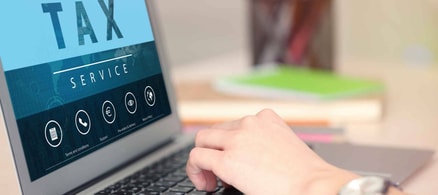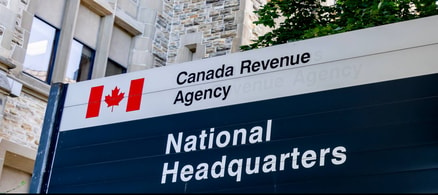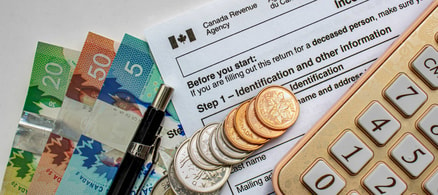And while there haven’t yet been reports of a processing slowdown in Canada to match what’s happening in the U.S. — where the IRS is swamped with millions of backlogged returns — the pandemic will likely affect the timelines we’re used to.
So if you’re owed a tax refund this year, how long can you expect to wait to get it? It depends on a few important factors.
Efile or old-fashioned mail?

The Canada Revenue Agency (CRA) is recommending that as many Canadians as possible file online.
According to the CRA, 90% of returns were filed online last year.
Filing online will speed up the process, since you won’t have to wait for your paper return to make its way through the mail.
The average processing time for a web-filed return is 10 business days. That’s compared to 10 to 12 weeks for a return sent through snail mail.
The CRA is also recommending Canadians file their returns as early as possible. Online filing has been open since February, so the sooner you can get your return filed, the better.
Whatever tax software you choose filing online is easy and it will get your refund into your hands faster.
Unexpected vet bills don’t have to break the bank
Life with pets is unpredictable, but there are ways to prepare for the unexpected.
Fetch Insurance offers coverage for treatment of accidents, illnesses, prescriptions drugs, emergency care and more.
Plus, their optional wellness plan covers things like routine vet trips, grooming and training costs, if you want to give your pet the all-star treatment while you protect your bank account.
Get A QuoteMajor changes this year?

Your return could take longer to process if your situation has changed dramatically in terms of income and the deductions.
Given the prevalence of pandemic-response benefits like CERB, tax filers have had a lot to keep track of this year.
And unfortunately some pertinent details were lost on many Canadians.
“CERB is taxable, which a lot of people didn’t know,” says Josée Cabral, a senior tax expert at H&R Block.
“People did not understand the impact of getting that money. Yes, they needed it, but a lot of people just asked for it because it was available and they qualified for it, .”
Direct deposit or cheque?

Are you signed up for direct deposit with the CRA? If you’re not, expect a longer wait for your refund.
As with filing your return, snail mail slows the process down. Those who direct deposit will get a refund three to five days faster than those waiting for a physical cheque to hit their mailbox.
Signing up for direct deposit is very easy, and will definitely save you time. But it’s best to sign up as far in advance as possible, as processing times can vary.
Outstanding balance owing?

Another thing that can delay your refund is an outstanding balance with the CRA or another government agency.
If you still owe money from a previous tax year, including any late-filing penalties you may have incurred, the CRA will deduct that sum from your refund.
And not only will these balances lessen the amount of money you get — or even wipe it out entirely — it will also add a few days’ worth of processing time
Any overpayment you may have received — on benefits like Employment Insurance (EI), the Canada Child Benefit (CCB) or the GST/HST credit — will also be applied against your refund. Even outstanding traffic fines are factored in.
You can find out if you owe money that could delay your return by logging in to your CRA My Account or calling the agency directly at their general inquiries line, 1-800-959-8281.
Outstanding debt of any kind will negatively impact your credit rating, so make sure you’re taking advantage of resources and products that can help you monitor and repair your credit scores
Little things add up

There are also several smaller details that can slow your refund.
For example, if your current address doesn’t match what the CRA has on file (supposed you’ve moved and neglected to notify the CRA), your return won’t be accepted through Netfile, the digital filing portal
Errors on your return will also lengthen the process. If you’re claiming expenses or reporting income and make a mistake, that could prompt the CRA to investigate.
Cabral points out that there’s a difference between the CRA verifying information on your return and a full-on audit.
“‘Audit’ is a big word,” Cabral says. “Before there’s an audit, there’s a file verification. Basically the government sends you a letter asking you for more information.”
Having your taxes prepared professionally is a good way to stay ahead of this sort of situation.
What you should do with your refund

The CRA recently announced that CERB had been extended further into 2021. If you’re receiving benefits, you have some planning to do.
Cabral has been recommending that her clients who are receiving CERB or any other COVID-related benefits put some of that money away to avoid getting hit with another big tax bill.
“Throughout all this pandemic, I’ve been telling people in all my interviews to put $400 aside for each $2,000 they got,” she says.
In general, saving your money is a smart move. As 2020 showed us all, you could do a lot worse than having some money socked away just in case.
If you’re unsure what to do with your refund, it doesn’t hurt to keep in mind what not to do with your money.
You can also make that refund work for you by investing it for free.
Who knows? Maybe by next year you’ll be in a higher tax bracket because of an investment windfall.
But if that’s the case, you may want to look into engaging the services of a tax expert to ensure that your return is in order.
Sponsored
Trade Smarter, Today
With CIBC Investor's Edge, kick-start your portfolio with 100 free trades and up to $4,500 cash back.






